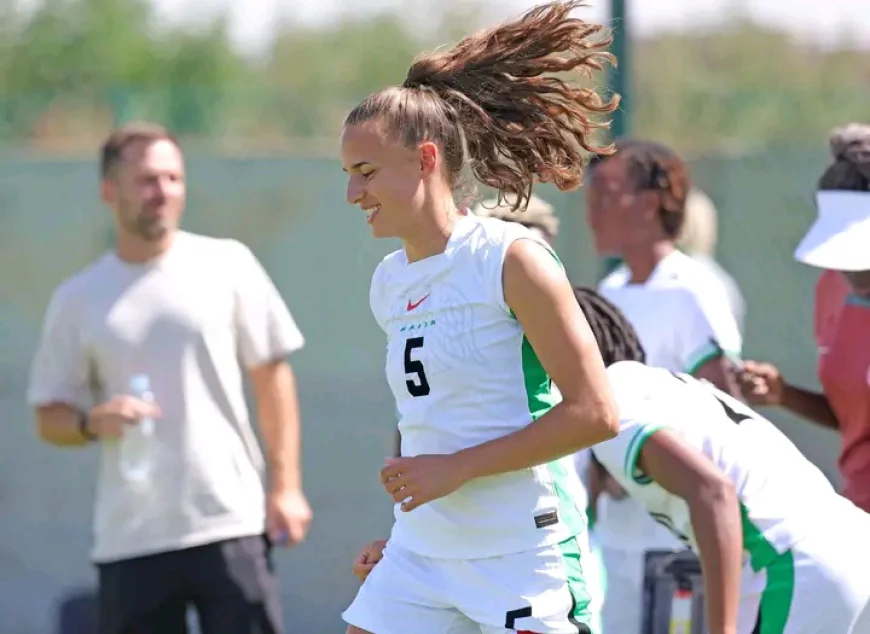Ashleigh Plumptre Highlights Poor Facilities for Super Falcons at WAFCON, Calls for Greater Investment in Women’s Football

Super Falcons defender Ashleigh Plumptre has voiced concerns over the inadequate facilities and support structures provided to the Nigerian women’s national team during the Women’s Africa Cup of Nations (WAFCON) held in Morocco.
Plumptre revealed that throughout the team’s stay in Casablanca—where Nigeria played all their group matches, as well as the quarterfinal and semi-final fixtures—basic recovery infrastructure such as a gym and swimming pool were notably absent from their accommodation.
“There were no proper recovery amenities available to us. No gym, no pool… It took a toll on the players, especially as we progressed deeper into the tournament,” she said.
Drawing a comparison with European teams, Plumptre pointed to the high level of investment and planning behind squads like England’s, who recently won the UEFA Women’s Euro. “You can see the difference in support—the quality of training fields, recovery resources, and the overall structure. It’s the small details that matter, and they all add up,” she added.
The defender’s comments have reignited calls for deeper structural reform and sustainable investment in women’s football in Nigeria.
How Can Private Investment Help Develop Women’s Football?
Plumptre’s concerns underscore a broader issue: the urgent need for private sector involvement in the development of women’s football in Nigeria and across Africa. Here are several key pathways through which private investment can make a tangible impact:
1. Infrastructure Development: Corporations can fund the construction and maintenance of training centres, gyms, medical facilities, and proper recovery environments specifically for female athletes.
2. Sponsorship & Branding: Strategic sponsorship deals can elevate the visibility of women’s leagues, tournaments, and players, helping to drive fan engagement and media coverage.
3. Youth Academies & Grassroots Initiatives: Investment in youth development programs tailored for girls can build a strong talent pipeline while promoting inclusion and equal opportunity in sports from an early age.
4. Player Welfare & Professional Standards: Private funding can support better salaries, healthcare, insurance, and post-career programs, contributing to a more professional and sustainable environment for female footballers.
5. Media Rights & Commercial Opportunities: By investing in the broadcasting and digital distribution of women’s matches, private firms can help grow the sport’s audience and commercial value, encouraging reinvestment.
With proper collaboration between the Nigeria Football Federation (NFF), government agencies, and private stakeholders, women's football can be transformed into a thriving, competitive, and self-sustaining sector—benefiting players, fans, and the wider sporting ecosystem.


